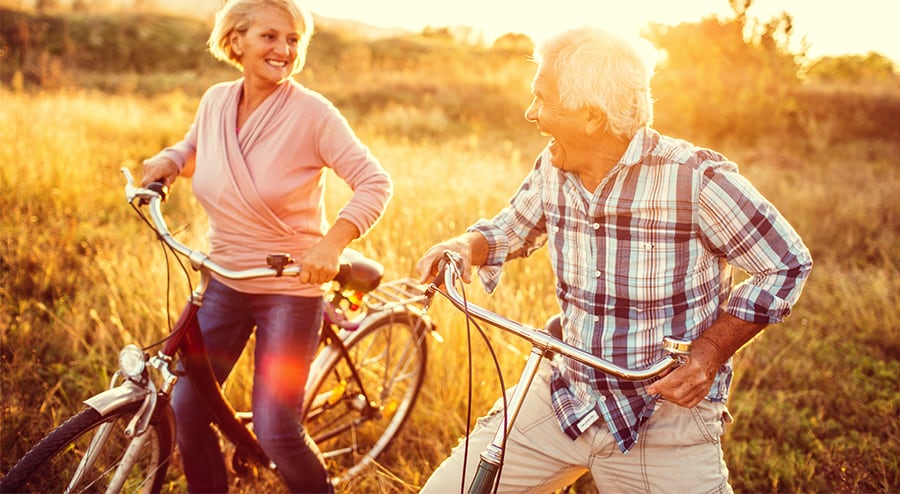From birth to death, we are aging. No matter what we do to slow it down or stop it, old age is coming, and we have to be ready for it rather than fighting it. We cannot stop our aging process, but we can keep our physical and mental health under control as we get there.
Thanks to the medical advancements in the world today, people are living longer and staying mentally and physically fitter. It’s essential that we get involved in how we can stay healthy long into our elderly years.
With that in mind, let’s take a look at some of the best suggestions for maintaining a healthy physique and mental age as we get older.
Eat Well
It’s a sad figure, but it’s one that isn’t any less true. More and more of our elderly population are suffering from malnutrition. There are also some on the other side of the coin who are dealing with obesity issues. With either of these extremes comes a whole host of other problems, such as abnormal blood pressure and heart issues that can be fatal.
It’s recommended that to maintain a healthy heart and a healthy weight, a diet that focuses on healthy fats, protein, fruit and vegetables, and healthy whole grains is the way forward. Known as the Mediterranean diet, it’s been proven to assist with the aging process, too. All of this doesn’t need to be expensive and you can eat well on a budget.
Take Supplements
As we age, we lose some of the critical micronutrients that keep our bodies working. These include folate, vitamins B12 & D and protein calcium. While it would be nice to get everything that we need from our food, it can be challenging to do it in our elderly year’s given other intolerances and issues surrounding food.
However, maintaining healthy bones, a healthy heart and general wellbeing takes recognising which supplements are best to take. Along with this, keeping a healthy water intake is vital for brain health and general health, and without enough water, you could experience fatigue, headaches, and confusion, which can often be further mistaken for other issues.
Getting Exercise
When we age, we assume our bodies don’t want to move as much. For some, this is the case. The aches and pains that go with age and a lifetime of hard work can make it difficult to get off the sofa and keep moving. The thing is, the longer you stay stagnant and don’t move, the worse it is for your health. Taking at least 30 minutes every day to exercise – in any way you like, from walking to swimming – can make a massive difference to your health and wellbeing.
There aren’t any necessary drastic changes to make, but choosing to spend time gardening or walking to the stores can change the way your body feels. Alzheimer’s, arthritis, anxiety, and dementia all have symptoms that have been proven to be relieved by merely staying active. By spending less time sitting and more time moving, you’re going to notice the difference in your body and the way that you move. Consider these exercises as you get older.
See The Doctor
It may feel like a waste of time, a drag, but getting regular physicals with your doctor can make all the difference to your health when you are of advanced age. Doing this can ensure that any critical issues that come about are caught early, and this stops those issues from taking hold. No one likes to take time out of their day to see their doctor, but if it could make the difference between your health remaining stable and deterioration that you aren’t aware of, it’s best to go.
Plan Your Home Safety
When we are children, our parents put measures in place to keep us safe – from stair gates to socket covers. As we approach our elder years, we need to do the same thing. It may seem ridiculous, and you definitely don’t need stair gates, but you do need to plan your home safety so that you don’t end up in the hospital with a fall.
Clumsiness is a problem in age, and around a third of people aged over 65 will end up in the hospital due to falls. Prepare your home for safety by ensuring loose wires and carpeting are tucked away, installing a railing in the stairways to hold onto and checking you have carbon monoxide alarms fitted. You may wish to consider more permanent home adaptations that will help as you get older, and less mobile.
Rest, Perfect Rest
You’re elderly, you’re not about to shop for a coffin, but that doesn’t mean that you can’t get as much physical rest as possible. Sleep as many hours in the night and be sensible about your bedtime so that your sleep is enough.


